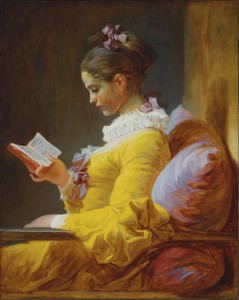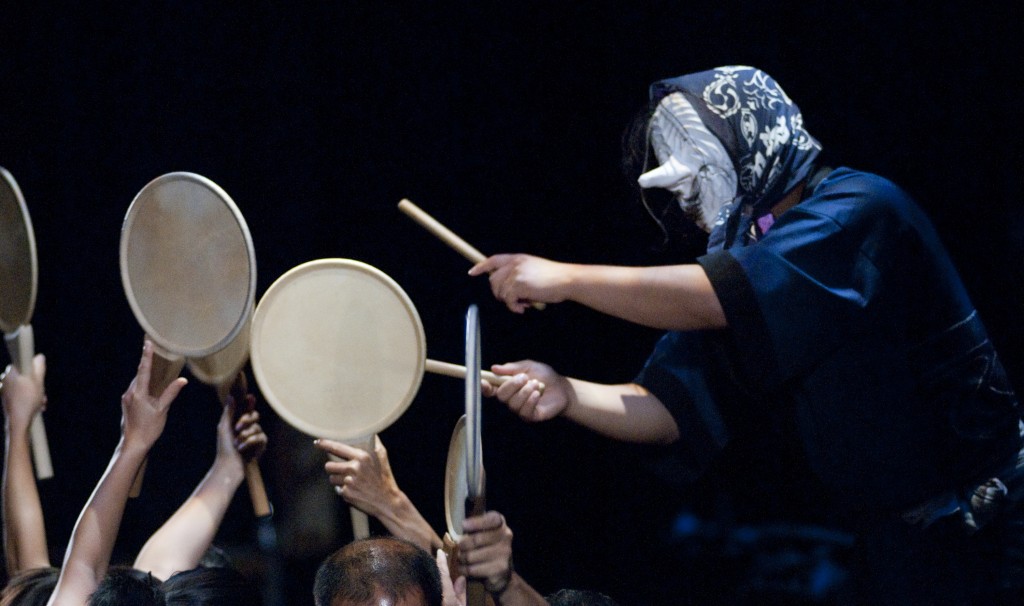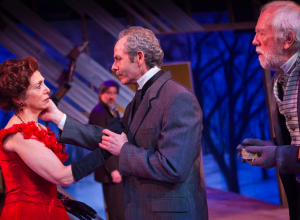“By and large, time moves with merciful slowness in the old-fashioned world of writing. … (T)he rhythms of readers are leisurely. They spread recommendations by word of mouth and ‘get around’ to titles and authors years after making a mental note of them. … A movie has a few weeks to find an audience, and television flits by in an hour, but books physically endure, in public and private libraries, for generations.”
John Updike, The Writer in Winter
Collected in Higher Gossip: Essays and Criticism, 2011
By Bob Hicks
Mr. Scatter contends that time is not an arrow: we all live in several pasts, several presents, even a few futures. At any moment, and in separate yet overlapping ways, we are old and young, conservative and radical, classical and modernist. We are ever-shifting texture, contradictions that forge ahead and loop back on ourselves. Crusty old children. Impetuous adults. Civilized wild creatures. Logical irrationalists. Mysteries, even to ourselves.
 In that sense reading and writing may be the most human of the arts. They follow us, and sometimes lead us, into these bewilderments of emotion and thought – the places that may not make sense, but simply are. Books explain things, and smudge them up. They are private pleasures that draw us beyond ourselves. And they are time-travelers. They can be “new” to any given reader at any given time, sometimes even when that reader has experienced them before. O miracle divine!
In that sense reading and writing may be the most human of the arts. They follow us, and sometimes lead us, into these bewilderments of emotion and thought – the places that may not make sense, but simply are. Books explain things, and smudge them up. They are private pleasures that draw us beyond ourselves. And they are time-travelers. They can be “new” to any given reader at any given time, sometimes even when that reader has experienced them before. O miracle divine!
This year, Updike’s notion of the “merciful slowness” of literature sets the table for my annual recap of my year’s readings. Considering the rivers of writing that flow into the great literary ocean in any given year, it’s a foolish quest. Yet I feel curiously compelled to undertake what amounts to a private reckoning in a public space. These books, all of which I read in 2011, engaged me. I believe in them, and like most readers in most times and places, I feel an urge to pass my enthusiasms on to someone else who might enjoy them just as much.
This is not a best-of-2011 listing. A few of the books were new last year. Several others have been kicking around for quite a while. In subject and style they sprawl all over the place, from classic animal fable to the Pine Ridge Indian Reservation to the wonders of the Louvre and the woes of Henry Miller and Anais Nin. That sort of leaping-about is the way life actually works for most of us, and it’s the way I like it. The discipline of writing opens up the world. And it isn’t simply, or even primarily, about what’s new, although a steady flow of fresh energy is necessary to its continuing health. How can we understand the new without some familiarity with the old? Why would we want to try?
 Portland Taiko. Rich Iwasaki/2009
Portland Taiko. Rich Iwasaki/2009 There isn’t much story to The Cherry Orchard, but there are themes, counter-themes, motifs. It’s chamber music, and the way we hear it can be startlingly different from production to production, depending not just on our own life experiences (interpreting Chekhov relies to an extreme on what the audience brings to it) but also on the emphases of interpretation on the stage: Do we concentrate on the cello tonight, or the bassoon? In truth, I suspect that even more so than ordinarily, every member of the audience sees a different play when watching Chekhov.
There isn’t much story to The Cherry Orchard, but there are themes, counter-themes, motifs. It’s chamber music, and the way we hear it can be startlingly different from production to production, depending not just on our own life experiences (interpreting Chekhov relies to an extreme on what the audience brings to it) but also on the emphases of interpretation on the stage: Do we concentrate on the cello tonight, or the bassoon? In truth, I suspect that even more so than ordinarily, every member of the audience sees a different play when watching Chekhov.